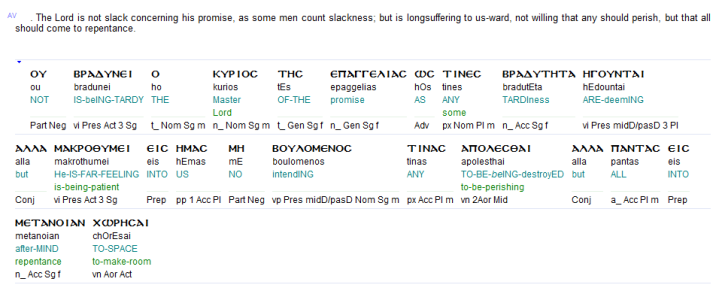@Johann
Johann, it does indeed align perfectly with all scriptures and the teaching of Christ and his apostles.
Luke 4:18
“The Spirit of the Lord
is upon me, because he hath anointed me to preach the gospel to the poor; he hath sent me to heal the brokenhearted,
to preach deliverance to the captives, and recovering of sight to the blind,
to set at liberty them that are bruised,”
Galatians 4:8
“Howbeit then, when ye
knew not God, ye did service unto them which by nature are no gods.”
Ephesians 2:2
“
Wherein in time past ye walked according to the course of this world,
according to the prince of the power of the air, the spirit that now worketh in the children of disobedience:”
Johann, those scriptures and similar ones are written to the children of Israel, not to the Egyptian's; to Indigenous peoples; to witch doctors of Hatti, Africa, nor, the Chinese, etc. Those scriptures are written to folks like you and I, and others on this forum, etc.
Johann, there's a huge difference between
initiated, and not of! That's is borderline of corrupting the word of God, maybe I should be honest and tell you that
it is!
Romans 10, Johann, is addressing a different subject altogether than Romans 9. I went through Romans 10 recently, and have no time to do so now, yet Romans 10 is addressing a
practical salvation
"from ignorance to a true knowledge" of the Christ ~
not salvation from sin and condemnation. .
Romans 10:3
“For they
being ignorant of God's righteousness, and going about to establish their own righteousness, have not submitted themselves unto the righteousness of God.”
The elect Jews who
fear God and were zealous,
yet still in ignorance of how one is made righteous without the works of the law! Paul prayed for them, not to add to the number of the elect, but for their
practical salvation from ignorance .......much like here on this forum, where God has children on both sides of the issue of how one is made righteous before God. This battles is on going, with a few reprobates stirring up the division.
Jesus did say they would not come, which to me only proves that their flesh had
no desire to do so, and I will add ~ this is true of all men by nature. Johann, if one does come and one does not come, then let me ask you this question ~
WHO made the difference? If you or anyone else said that man man's will in the one's that came made the difference, then by your own confession, you are embracing a work gospel, pure and simple. This goes against Jesus' teaching and Paul's:
Matthew 16:17
“And Jesus answered and said unto him, Blessed art thou, Simon Barjona: for flesh and blood hath not revealed
it unto thee,
but my Father which is in heaven.”
1st Corinthians 4:7
“For
who maketh thee to differ
from another? and what hast thou that thou didst not receive? now if thou didst receive
it, why dost thou glory, as if thou hadst not received
it?”
Those two scriptures have recently been dealt with, but if you desire for me to do so again then tell me. Ephesians 1:13 at least three times in the past couple months.
Actually, I know the same concerning those who preach free will, they just refuse to accept man being totally corrupt by nature. They reject such scriptures as:
Romans 7:18
“For I know that in me (that is, in my flesh,)
dwelleth no good thing: for to will is present with me; but
how to perform that which is good I find not.”
To will is only present by God creating a new man within us, if the new man was not there, we would never desire to do that which is pleasing to God,
never. Even with the new man, and even in our most spiritual moments,
sin is present, that keeps us from doing God's will perfectly. It is in our prayers, loving others, preaching/teaching/witnessing, etc.,
sin is present, even with our new man being also present! How much more so, with those not born again! You really do not want to go there where unregenerate men and women live!

